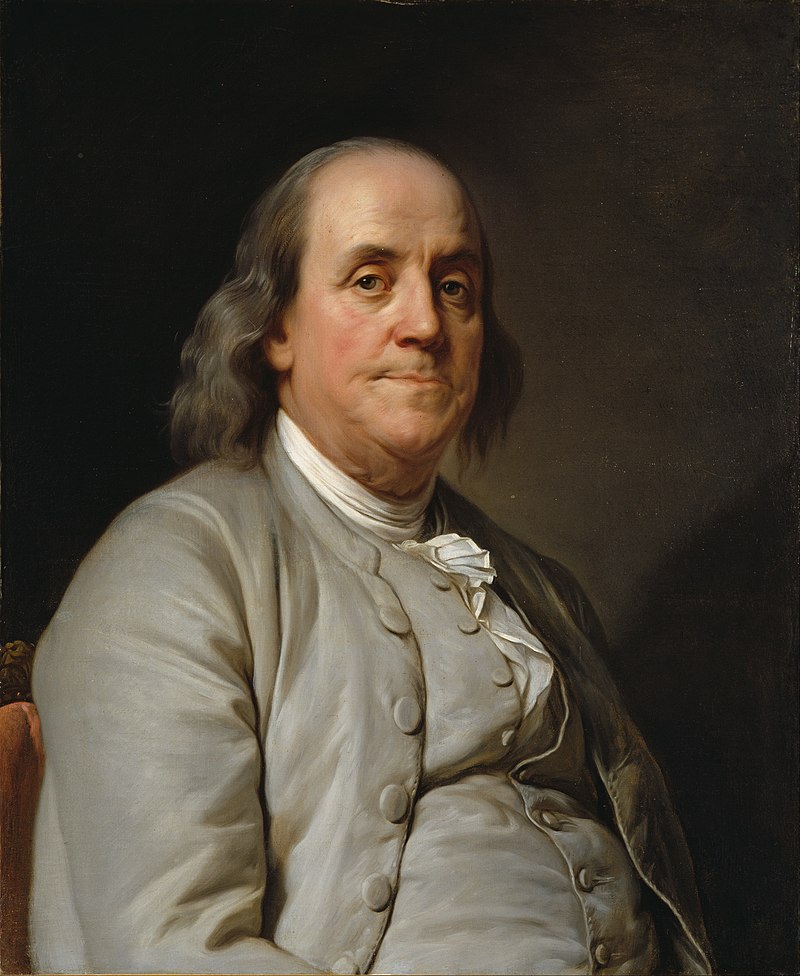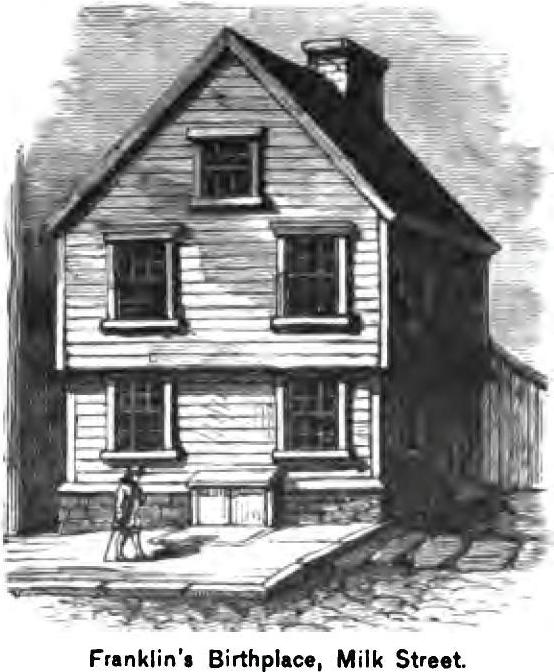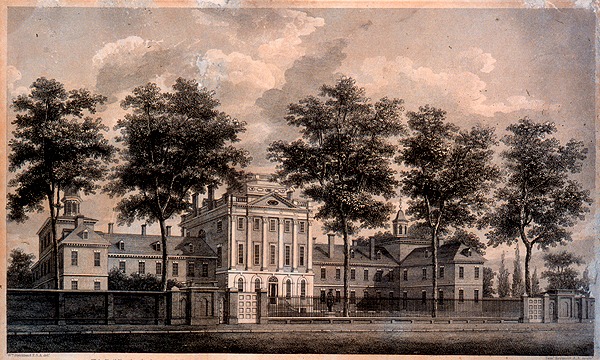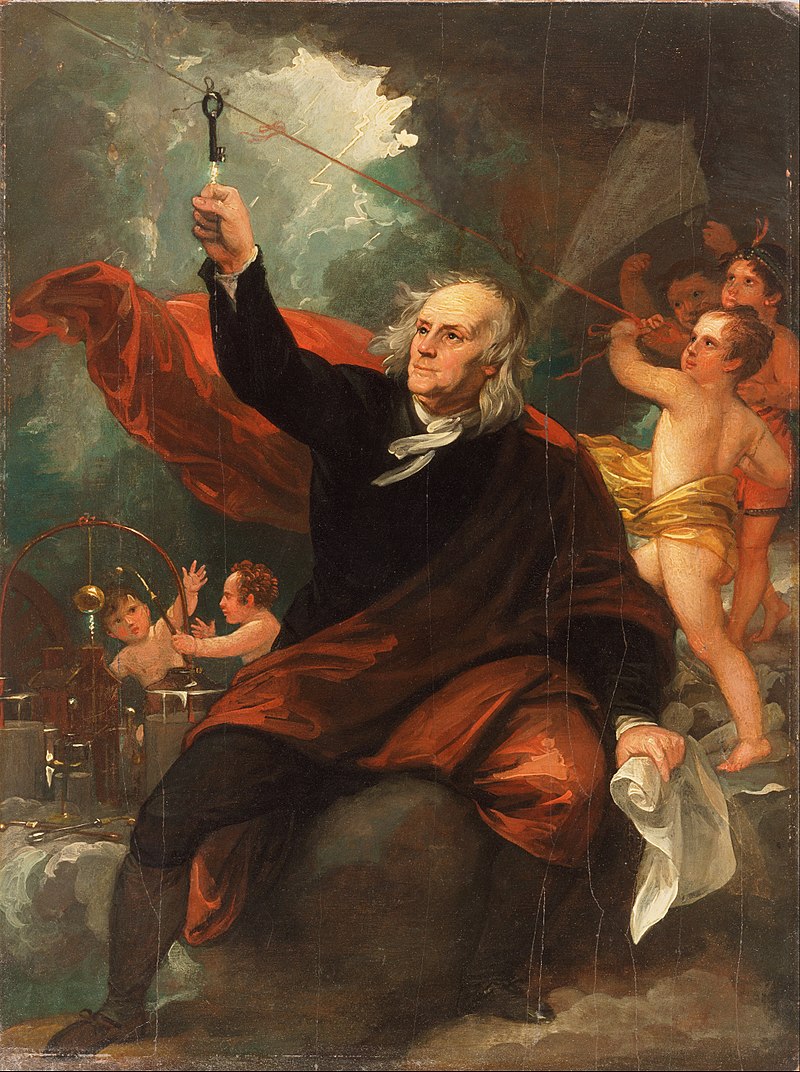Benjamin Franklin was an American polymath who possessed knowledge of various subjects. He was a writer, scientist, inventor, printer, diplomat, statesman, publisher, and political philosopher when alive. Therefore, he possessed knowledge in various different fields and was among the leading intellectuals of his time.
His vast knowledge gained him a lot of respect and power. He was one of the Founding Fathers of the United States. He is known to have drafted and signed the Declaration of Independence. Benjamin Franklin was also the first United States Postmaster General.
Franklin was a significant figure in the American Enlightenment and played his role as a scientist. He is well known in the history of physics as his studies on electricity were quite substantial. Franklin is also known to name and chart the Gulf Stream.
Benjamin Franklin was also an inventor and has been known to invent the lightning rod, the Franklin stove, and the bifocals. He has also founded many civic organizations, such as the Library Company, which is Philadelphia’s first fire department. Franklin also founded the Univerity of Pennsylvania.
Therefore, he was not just an inventor of valuable organizations but also many different organizations. He also earned the title of The First American. This title was awarded because of his early campaign for colonial unity and for taking on the role of a spokesman in London for several colonies.
Benjamin Franklin was also the first United States ambassador who traveled to France and exemplified America, the emerging nation. Therefore, he is instrumental in defining the American ethos, which is the perfect amalgamation of practical values, hard work, community spirit, education, self-governing institutions, and the opposition to authoritarianism in both ways, political and religious.
Benjamin Franklin left behind a legacy of science and political achievements. His most notable contribution is his status as one of America’s founding fathers. He is honored years after his death and appears on $100 bills, names of towns, educational institutes, corporations, etc.
Early Life
Benjamin Franklin was born on January 17, 1706, on Milk Street, Boston, Massachusetts. His house was situated along the Charles River, and he considered himself a leader among his friends.
Franklin’s father wanted his son to attend school with the clergy, but he had enough money to send him to school for two years. Later, he attended the Boston Latin School but failed to graduate. However, he did not halt his education there and continued to learn by reading copious amounts of books.
To Benjamin Franklin himself, his schooling ended when he was ten as he began to work for his father from time to time. When he was 12, he became an apprentice to James, his brother, who was a printer. James taught his brother all there was to know about the printing trade.
When Franklin turned 15, James founded the first American newspaper called the New English Courant. Benjamin wanted to write a paper for the publication, but he was denied the chance to. Therefore, he picked up the pseudonym of Silence Dogood. This character was a middle-aged widow whose letters were published and became the talk of the town.
None of the readers of The New English Courant or his own brother, James, realized that Silence Dogood was his little brother. When his brother finally discovered it, he was pretty displeased.
From an early age, Benjamin Franklin was an advocate for free speech. Once his brother was jailed in 1722 for publishing particular material about the governor in his newspaper. It was then when young Benjamin Franklin took over the newspaper and submitted letters from Mrs. Dogood about having the freedom of speech.
At the age of 17, Benjamin Franklin ran away from home and to Philadelphia in hopes of a new start. When he arrived, he took up jobs related to printing since it was what he knew most about. However, the prospects were not appealing.
Within a few weeks of working in the industry, the governor of Pennsylvania, Sir William Keith, made him go to London to acquire a piece of equipment that would make establishing another newspaper in Philadelphia possible.
However, Benjamin Franklin soon realized that Keith’s promises were empty, and he settled to work as a typesetter in a printer’s shop. That place is now the Church of St Bartholomew the Great, located in the Smithfield area of London.
At 21, in 1727, Benjamin Franklin got together like-minded artisans and aspiring tradesmen to form a group that would improve themselves and the community. This group was Junto. In later years, that group gave rise to many organizations.
Benjamin Franklin was also an author. In 1733, he published the noted Poor Richard’s Almanack. The content of this book was both original and borrowed. However, the book did not credit him as the writer. Instead, Franklin used the pseudonym of Richard Saunders, and much of his publishing reputation is based on that name.
He used that name frequently and developed a distinct style with which he wrote all of his works. His writing style was plain and pragmatic, and there was a sly touch to it, but overall it was soft with a hint of self-deprecation.
It was not a secret of who Richard Saunders was; he made his characters repeatedly deny that he was Benjamin Franklin.
Notable Contributions
Throughout his life, Benjamin Franklin made various notable contributions and was popular among the public. In 1736, he created the Union Fire Company, which was the first firefighting company in America. In the same year, for New Jersey, he printed a new currency that was based on innovative technology, including anti-counterfeit technology.
This anti-counterfeit technique was devised by himself as he advocated for paper money throughout his career. He even published A Modest Enquiry into the Nature and Necessity of Paper Currency in 1729. In 1766, he also made an appeal for the case of paper money to the British House of Commons.
As he grew old and matured, Franklin began to become more and more involved with public affairs. One of the actions he took was devising a scheme for the Academy, Charity School, and College of Philadelphia in 1743.
However, his plans did not pan out the way he had imagined as Rev Richards, the man he hoped would run the Academy, refused. Thus, Franklin put aside his plans, and he was appointed to be the president of the Academy himself in 1749.
In 1754, Benjamin Franklin was the head of the Pennsylvania delegation that went to the Albany Congress. This meeting included several colonies and was requested by the Board of Trade in England. The primary purpose was to improve their relationship with the Indians and form a defense against the French.
His involvement and his public life were greatly appreciated. In 1753, both Harvard and Yale honored him with an honorary master of arts degree. Later, he also received an honorary master of arts degree from the College of William and Mary.
A few years later, in 1737, Franklin was appointed to be the postmaster of Philadephia since it was well-known knowledge that he was a printer and publisher. He held the office until 1753. That year, both he and William Hunter were named deputy postmasters-general of British North America.
Franklin was also an active member of the Society for the Encouragement of Arts, Manufacturers, and Commerce, which was founded in 1754. He became the Society’s Corresponding Member in subsequent years and remained close with them.
After his passing, The Royal Society of Arts also instituted a medal in his honor called the Benjamin Franklin medal in 1956 in recognition of his 250th birthday.
Inventions
Franklin was an inventor from a young age. He created many devices such as the bifocal lenses, the lightning rod, the urinary catheter, and the Franklin stove. However, despite his many contributions, he never patented his ideas.
He believed that we should be glad of the opportunity to create something that serves others and do it freely and generously for the greater good.
Franklin was fascinated by electricity and explored the phenomenon in 1746 when he witnessed Archibald Spencer’s lectures, during which he used static electricity for his illustrations. He is well known for investigating electrotherapy through the use of an electric bath. This work made the field widely popular.
His work was widely recognized, and he received Copley Medals in 1753 and 1756 from the Royal Society. He was also among the very few 18th-century Americans elected to be a fellow of the Society.
Benjamin Franklin published a proposal for an experiment that would prove that the lightning during a storm was actually electricity. This experiment included flying a kite in a storm. When the experiment was conducted, a 12m rod was used instead of a kite, and he could extract sparks from a cloud.
This experiment led to the invention of the lightning rod, and he summarised how this invention could help protect high buildings from lightning.
Benjamin Franklin also had a good eye for experiments and theories. He was one of the few significant scientists, including Leonard Euler, who supported Christiaan Huygen’s wave theory of light. Initially, this theory was ignored by the scientific community.
However, later, it was proven to be confirmed through Newton’s corpuscular theory.
Death
Franklin passed away from a pleuritic attack in 1790. He had several health problems due to his obesity throughout his middle age and later years. Due to his poor health, he was rarely seen in public after 1787.
At the time of his death, he was 84 years old, and it is reported that his last words were a dying man can do nothing easy and were said to his daughter as she suggested that he change his position to lie on his side.
Twenty thousand people attended the funeral of one of the greatest self-made men in American history. He was interred in the Christ Church Burial Ground located in Philadelphia.
Conclusion
Benjamin Franklin’s life was filled with immense knowledge and achievement. From an early age, it had become evident that Benjamin Franklin would grow up to achieve great things. Even though he left school at an early age, he was always absorbed in books and learning more and more.
He has left behind a legacy of achievements that encompass both scientific and political achievements. He is also one of America’s Founding Fathers and is perhaps the most influential one. He is also considered one of the most capable men in history to the likes of Cristopher Columbus, etc.
Even centuries after his death, he is honored to a great extent, with many corporations and institutions being named after him. He is also featured on the $100 bill and a portrait of him in the Oval Office.




